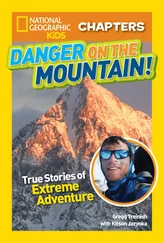Emily Denny - Blazing the Way; Or, True Stories, Songs and Sketches of Puget Sound
Здесь есть возможность читать онлайн «Emily Denny - Blazing the Way; Or, True Stories, Songs and Sketches of Puget Sound» — ознакомительный отрывок электронной книги совершенно бесплатно, а после прочтения отрывка купить полную версию. В некоторых случаях можно слушать аудио, скачать через торрент в формате fb2 и присутствует краткое содержание. Жанр: foreign_antique, foreign_prose, на английском языке. Описание произведения, (предисловие) а так же отзывы посетителей доступны на портале библиотеки ЛибКат.
- Название:Blazing the Way; Or, True Stories, Songs and Sketches of Puget Sound
- Автор:
- Жанр:
- Год:неизвестен
- ISBN:нет данных
- Рейтинг книги:3 / 5. Голосов: 1
-
Избранное:Добавить в избранное
- Отзывы:
-
Ваша оценка:
- 60
- 1
- 2
- 3
- 4
- 5
Blazing the Way; Or, True Stories, Songs and Sketches of Puget Sound: краткое содержание, описание и аннотация
Предлагаем к чтению аннотацию, описание, краткое содержание или предисловие (зависит от того, что написал сам автор книги «Blazing the Way; Or, True Stories, Songs and Sketches of Puget Sound»). Если вы не нашли необходимую информацию о книге — напишите в комментариях, мы постараемся отыскать её.
Blazing the Way; Or, True Stories, Songs and Sketches of Puget Sound — читать онлайн ознакомительный отрывок
Ниже представлен текст книги, разбитый по страницам. Система сохранения места последней прочитанной страницы, позволяет с удобством читать онлайн бесплатно книгу «Blazing the Way; Or, True Stories, Songs and Sketches of Puget Sound», без необходимости каждый раз заново искать на чём Вы остановились. Поставьте закладку, и сможете в любой момент перейти на страницу, на которой закончили чтение.
Интервал:
Закладка:
Emily Inez Denny
Blazing the Way; Or, True Stories, Songs and Sketches of Puget Sound
A star stood large and white awest,
Then Time uprose and testified;
They push’d the mailed wood aside,
They toss’d the forest like a toy,
That great forgotten race of men,
The boldest band that yet has been
Together since the siege of Troy,
And followed it and found their rest.
PREFACE
In the early days when a hunter, explorer or settler essayed to tread the mysterious depths of the unknown forest of Puget Sound, he took care to “blaze the way.” At brief intervals he stopped to cut with his sharp woodman’s ax a generous chip from the rough bark of fir, hemlock or cedar tree, leaving the yellow inner bark or wood exposed, thereby providing a perfect guide by which he retraced his steps to the canoe or cabin. As the initial stroke it may well be emblematical of the beginnings of things in the great Northwest.
I do not feel moved to apologize for this book; I have gathered the fragments within my reach; such or similar works are needed to set forth the life, character and movement of the early days on Puget Sound. The importance of the service of the Pioneers is as yet dimly perceived; what the Pilgrim Fathers were to New England, the Pioneers were to the Pacific Coast, to the “nations yet to be,” who, following in their footsteps, shall people the wilds with teeming cities, a “human sea,” bearing on its bosom argosies of priceless worth.
It does contain some items and incidents not generally known or heretofore published. I hope others may be provoked to record their pioneer experiences.
I have had exceptional opportunities in listening to the thrice-told tales of parents and friends who had crossed the plains, as well as personal recollections of experiences and observation during a residence of over fifty years in the Northwest, acknowledging also the good fortune of having been one of the first white children born on Puget Sound.
Every old pioneer has a store of memories of adventures and narrow escapes, hardships bravely endured, fresh pleasures enjoyed, rude but genial merrymakings, of all the fascinating incidents that made up the wonder-life of long ago.
Chronology is only a row of hooks to hang the garments of the past upon, else they may fall together in a confused heap.
Not having a full line of such supports on which to hang the weaving of my thoughts – I simply overturn my Indian basket of chips picked up after “Blazing the Way,” they being merely bits of beginnings in the Northwest.
E. I. DENNY.PART I. – THE GREAT MARCH
CHAPTER I
CROSSING THE PLAINS
With Faith’s clear eye we saw afar
In western sky our empire’s star,
And strong of heart and brave of soul,
We marched and marched to reach the goal.
Unrolled a scroll, the great, gray plains,
And traced thereon our wagon trains;
Our blazing campfires marked the road
As night succeeding night they glowed.
The noble army of courageous, enduring, persistent, progressive pioneers who from time to time were found threading their way across the illimitable wilderness, forty or fifty years ago, in detached companies, often unknown and unknowing each other, have proved conclusively that an age of marvelous heroism is but recently past.
The knowledge, foresight, faith and force exhibited by many of these daring men and women proclaimed them endowed with the genius of conquerors.
The merely physical aspect of the undertaking is overpowering. To transport themselves and their effects in slow and toilsome ways, through hundreds of miles of weary wilderness, uninhabited except by foes, over beetling mountain ranges, across swift and dangerous rivers, through waterless deserts, in the shadow of continual dread, required a fortitude and staying power seldom equaled in the history of human effort.
But above and beyond all this, they carried the profound convictions of Christian men and women, of patriots and martyrs. They battled with the forces of Nature and implacable enemies; they found, too, that their moral battles must be openly fought year after year, often in the face of riotous disregard of the laws of God and man. Arrived at their journey’s end, they planted the youngest scions of the Tree of Liberty; they founded churches and schools, carefully keeping the traditions of civilization, yet in many things finding greater and truer freedom than they had left behind.
The noblest of epics, masterpieces of painting, stupendous operas or the grandest spectacular drama could but meagerly or feebly express the characters, experiences and environment of those who crossed the plains for the Pacific slope in the midst of the nineteenth century.
“A mighty nation moving west,
With all its steely sinews set
Against the living forests. Hear
The shouts, the shots of pioneers!
The rended forests, rolling wheels,
As if some half-checked army reels,
Recoils, redoubles, comes again,
Loud-sounding like a hurricane.”
It is my intention to speak more especially of one little company who were destined to take a prominent part in the laying of foundations in the State of Washington.
Previous to 1850, glowing accounts of the fertility, mildness, beauty and general desirability of Oregon Territory, which then included Washington, reached the former friends and acquaintances of Farley Pierce, Liberty Wallace, the Rudolphs and others who wrote letters concerning this favored land. Added to the impression made thereby, the perusal of Fremont’s travels, the desire for a change of climate from the rigorous one of Illinois, the possession of a pioneering spirit and the resolution was taken, “To the far Pacific Coast we will go;” acting upon it, they took their places in the great movement having for its watchword, “Westward Ho!”
John Denny, a Kentuckian by birth, a pioneer of Indiana and Illinois, whose record as a soldier of 1812, a legislator in company and fraternal relations with Lincoln, Baker, Gates and Trumbull, distinguished him for the most admirable qualities, was the leading spirit; his wife, Sarah Latimer Denny, a Tennessean, thrifty, wise, faithful and far-seeing, who had for many widowed years previous to her marriage to John Denny, wrought out success in making a home and educating her three children in Illinois, was a fit leader of pioneer women.
These, with their grown-up sons and daughters, children and grandchildren, began the great journey across the plains, starting from Cherry Grove, Knox County, Illinois, on April 10th, 1851. Four “prairie schooners,” as the canvas-covered wagons were called, three of them drawn by four-horse teams, one with a single span, a few saddle horses and two faithful watchdogs, whose value is well known to those who have traveled the wilds, made up the train.
The names of these brave-hearted ones, ready to dare and endure all, are as follows:
John Denny, Sarah Latimer Denny and their little daughter, Loretta; A. A. Denny, Mary A. Denny and their two children, Catherine and Lenora; C. D. Boren, Mrs. Boren and their daughter, Gertrude; the only unmarried woman, Miss Louisa Boren, sister of Mrs. A. A. Denny and C. D. Boren; C. Crawford and family; four unmarried sons of John Denny, D. T. Denny, James, Samuel and Wiley Denny.
The wrench of parting with friends made a deep and lasting wound; no doubt every old pioneer of the Pacific Coast can recall the anguish of that parting, whose scars the healing years have never effaced.
The route followed by our pioneers was the old emigrant road along the north side of the Platte River, down the Columbia and up the Willamette to Portland, Oregon Territory, which they afterwards left for their ultimate destination, Puget Sound, where they found Nature so bountiful, a climate so moderate and their surroundings so ennobling that I have often heard them say they had no wish to return to dwell in the country from whence they came.
Читать дальшеИнтервал:
Закладка:
Похожие книги на «Blazing the Way; Or, True Stories, Songs and Sketches of Puget Sound»
Представляем Вашему вниманию похожие книги на «Blazing the Way; Or, True Stories, Songs and Sketches of Puget Sound» списком для выбора. Мы отобрали схожую по названию и смыслу литературу в надежде предоставить читателям больше вариантов отыскать новые, интересные, ещё непрочитанные произведения.
Обсуждение, отзывы о книге «Blazing the Way; Or, True Stories, Songs and Sketches of Puget Sound» и просто собственные мнения читателей. Оставьте ваши комментарии, напишите, что Вы думаете о произведении, его смысле или главных героях. Укажите что конкретно понравилось, а что нет, и почему Вы так считаете.












